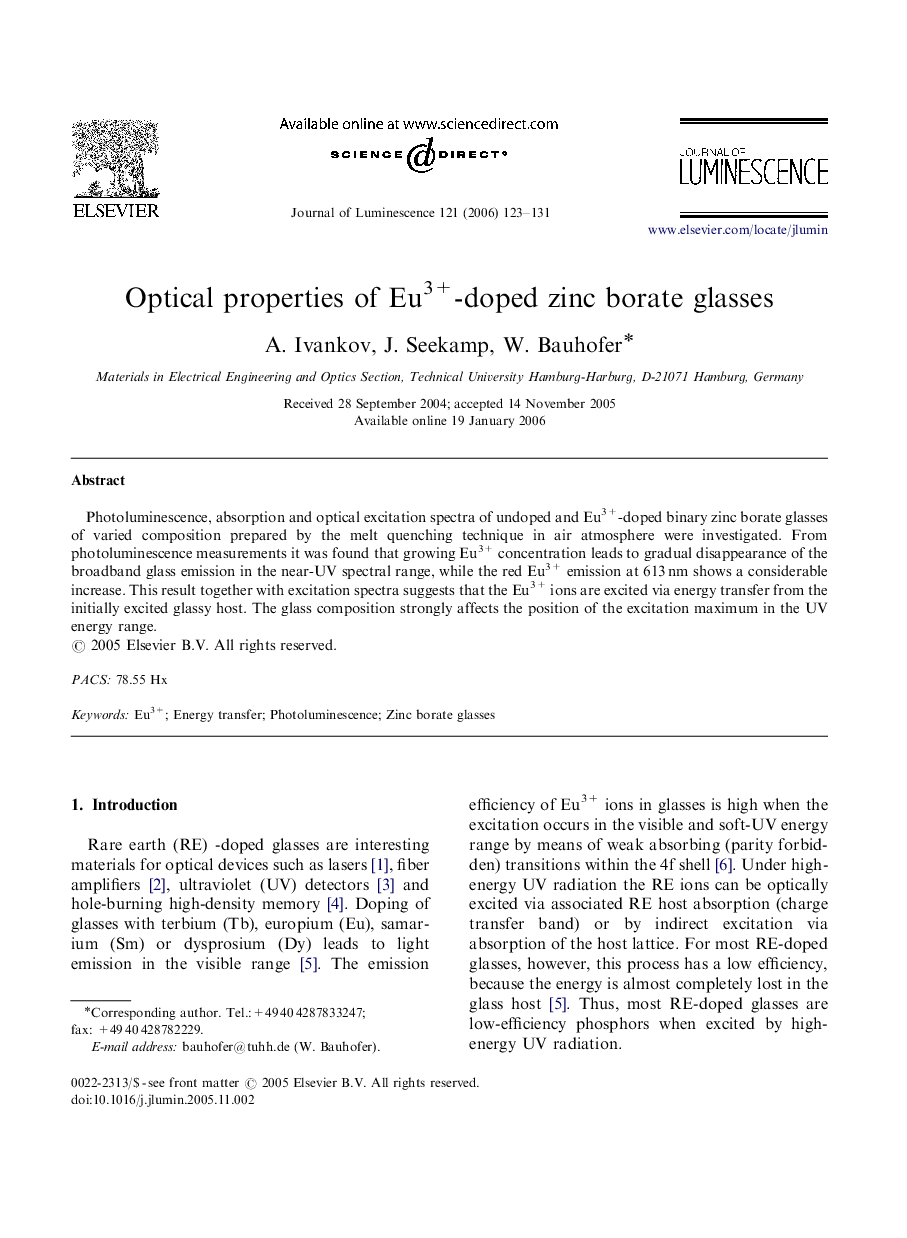| Article ID | Journal | Published Year | Pages | File Type |
|---|---|---|---|---|
| 5404281 | Journal of Luminescence | 2006 | 9 Pages |
Abstract
Photoluminescence, absorption and optical excitation spectra of undoped and Eu3+-doped binary zinc borate glasses of varied composition prepared by the melt quenching technique in air atmosphere were investigated. From photoluminescence measurements it was found that growing Eu3+ concentration leads to gradual disappearance of the broadband glass emission in the near-UV spectral range, while the red Eu3+ emission at 613Â nm shows a considerable increase. This result together with excitation spectra suggests that the Eu3+ ions are excited via energy transfer from the initially excited glassy host. The glass composition strongly affects the position of the excitation maximum in the UV energy range.
Related Topics
Physical Sciences and Engineering
Chemistry
Physical and Theoretical Chemistry
Authors
A. Ivankov, J. Seekamp, W. Bauhofer,
